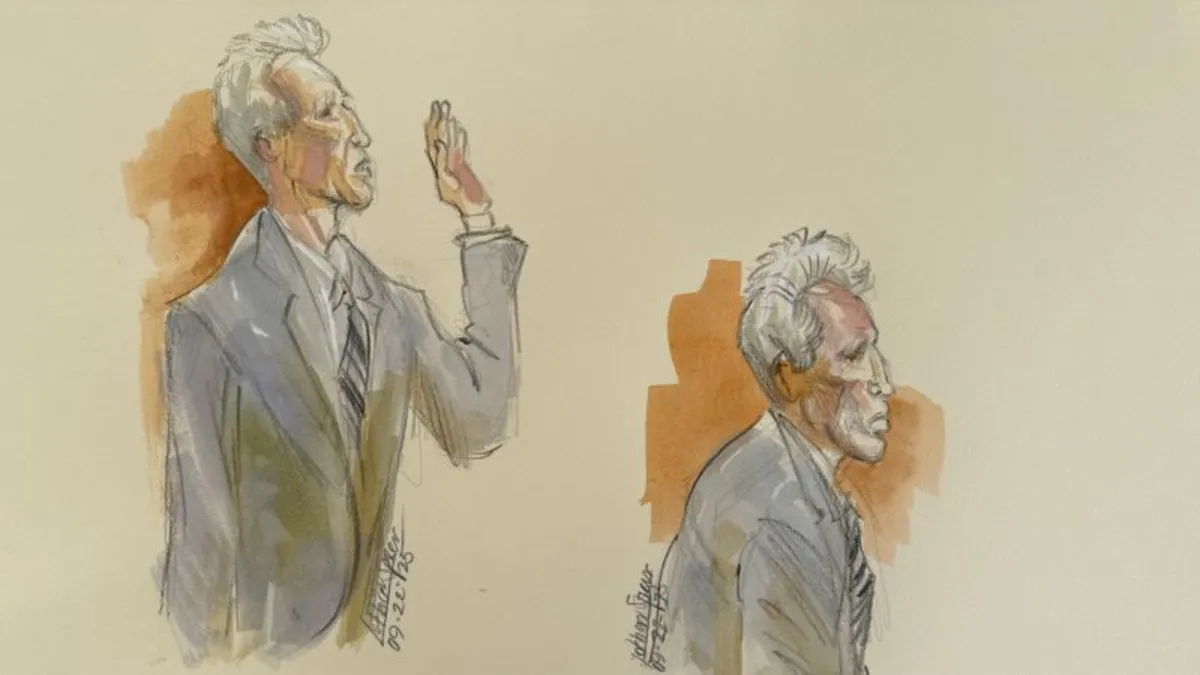
In a shocking turn of events, Ryan Routh, a 59-year-old man, has been found guilty of all charges related to his attempt to assassinate Donald Trump while the former president was playing golf at his exclusive Florida resort last year. This incident marks the second assassination attempt on Trump during his ongoing presidential campaign. Routh represented himself during the federal trial held in Fort Pierce, Florida, where he faced a total of five serious charges, including attempted assassination of a major presidential candidate, assaulting a federal officer, and illegally possessing a firearm and ammunition as a felon.
Authorities reported that Routh had constructed a "sniper’s nest" near the sixth green of Trump International Golf Club. Despite his preparations, he never discharged his weapon at the former president. After less than three hours of deliberation, the jury delivered a guilty verdict, and Routh now faces the possibility of life imprisonment. Following the verdict, Routh exhibited alarming behavior, attempting to stab himself with a pen before being restrained by courtroom authorities. The emotional turmoil extended to his daughter, who expressed her distress loudly in the courtroom.
The prosecution rested its case after presenting testimony from 38 witnesses over nearly two weeks. Among the key witnesses was Kimberly McGreevy, an FBI supervisory special agent, who detailed the evidence collected between August 14 and September 15, 2024, leading up to the alleged assassination attempt. McGreevy presented a wealth of evidence, including call logs, text messages, bank records, and video surveillance, all pointing to Routh's obsessive behavior in tracking Trump.
Cellphone records indicated Routh had been in the vicinity of the golf club for weeks leading up to the incident, including a suspicious 16-hour stay on September 2. Notably, searches from Routh's alleged "burner phones" revealed he was looking up "Trump’s upcoming rallies" and "Palm Beach traffic cameras." Prosecutors also outlined Routh’s escape plan, which involved multiple license plates, aliases, and internet searches for "directions to Miami airport" and "flights to Mexico."
Just under an hour before his planned attack, Routh sent heartfelt messages to his three children, which raised alarm among them. His son Orin responded to Routh's loving text with concern, asking, "What’s up? Everything alright?" Routh was apprehended as he attempted to flee north on Florida’s Interstate 95, just about an hour after his final messages.
Eyewitness Tommy McGee provided critical testimony, describing Routh as a "frantic and disheveled" man leaving the scene. McGee followed Routh, documenting his vehicle and license plate, which helped authorities track him down approximately 45 minutes later. During cross-examination, Routh acknowledged McGee as a hero for his quick actions.
During the closing arguments, both sides focused heavily on the intent behind Routh's actions. Prosecutor Chris Browne emphasized that even though Routh did not succeed in killing Trump, his obsessive planning showed clear intent to do so. Routh, defending himself, claimed that the assassination was "never going to happen," arguing that without a completed act, there was no attempt. His closing remarks were frequently interrupted by Judge Aileen Cannon as he drifted into irrelevant territory.
Routh's defense included three witnesses, including a former Marine sniper, Michael McClay, who testified about the rifle found at the scene. However, the prosecution disputed the weapon's reliability and pointed out inconsistencies in McClay's testimony. Routh faced further scrutiny when his remarks about past drug use were deemed irrelevant by the judge, who urged him to remain focused on the case at hand.
The verdict against Routh not only highlights the serious nature of political violence but also underscores the commitment of the Department of Justice to hold individuals accountable for such actions. Attorney General Pam Bondi stated that this attempted assassination was an affront not only to the President but to the nation itself. As Routh awaits sentencing, the implications of this case will resonate throughout the political landscape, serving as a stark reminder of the dangers public figures face.